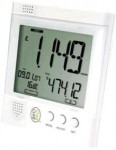Energy Performance Certificate EPC
Energy Performance Certificate EPC
Find out more about EPCs - Energy Performance Certificates
home > energy efficiency | generalThe idea for the Energy Performance Certificate (EPC) is to measure the carbon footprint your property has on our planet and not what you use as a person. By collecting energy performance data and putting it into the Landmark central software package, the current carbon output for a property can be calculated (via a complex algorithm) and steps suggested to lower this carbon output. The list of recommendations included in the certificate suggest possible financial savings that could be made by increasing your property's insulation etc.
Energy Performance Certificates are a European Directive and as such, most of ourEuropean neighbours now have to produce EPC's for the sale of properties. In the future,it is hoped that the data we are collecting now will be analysed and go to help reducingthe carbon footprint not only in the UK, but worldwide, by introducing new measures forhome efficiency.
We all look to save money at home, but how many of us actually take the time to increasethe amount of loft insulation or change our lighting to low energy lighting? It is hoped that the energy and money saving measurements presented in EPCs will prompt people to make more effort.
So what is involved? The energy assessor will need to look at the heating system,hot water tank, lighting, windows and conservatory, wall and loft insulation and take measurements of the property's dimensions. Some photographs will also be taken as back up but not released to anyone or on to the internet.
There is no pass or fail to the EPC survey and the average survey for a 3 bedroomsemi-detached house is around 40 minutes. There is no need to prepare the property inadvance.
The age or style of the property is immaterial as all residential properties will needan EPC before selling or letting. Some exceptions do apply such as property for re-development, bed and breakfasts, lodgers, HMO houses and mobile homes.
The current legislation states that when you start marketing your property for sale or rent,you have 28 days to produce the EPC. In addition, the EPC must be booked in before themarketing of a property can commence. Failure to do so can result in a £200 fine.
Currently, the EPC is valid for 10 years for both resale and lettings. When letting yourproperty you will need an EPC to hand to your tenant. You do not need to have a new survey for every new tenant if you have a current EPC.
The survey is non-invasive and the energy assessor will only report on visual evidence.Therefore, if you have any documentation to support cavity wall insulation or loftinsulation hidden under boards, this is always appreciated.
The age of any extensions or loft conversions will always be needed and full access to theheating boiler and every room in the property is also required.

In the sample graphs above we can see the two main areas an EPC can quantify after a survey has been completed.
In the left hand graph we can see the current efficiency of a property and the potential to improve this efficiency. If a property has, for instance, 100mm of loft insulation (current), the certificate will recommend increasing that to at least 270mm (potential). Therefore, where a surveyed property is lacking in insulation or heating controls, the certificate will make recommendations for improvements which are reflected in the graph and how any improvements made can enhance the efficiency of your home.
The graph on the right is based on the environmental impact a property has on our planet.The current and potential figures are similar to those of the Energy Efficiency Rating. The more improvements you make to the property, the closer it will get to its potential.
Depending on the age of your property it is highly unlikely you can achieve a perfect rating. For instance, a Victorian house can only have so much improvement and will not obtain an A band. This is because of the way they were constructed and the materials used 100+ years ago. A new house, on the other hand should be in the A band as the current building regulations are so severe that new builds are designed with the best energy efficiency during the design stage.
More Information
In some circumstances, grants are available to assist with the updating of a property to make it more energy efficient. First speak with your local Council and also look at thefollowing websites: Energy Saving Trust, and LCBP.Property Assess are an independent EPC provider based in Winchester,Hampshire. For more FAQ's or Money Saving Tips, please visit their website atwww.propertyassess.co.uk.
Comment on this Article
If you have any comments on this article, please email them to neil@reuk.co.uk.Related Articles and Products
More from the REUK.co.uk website:| Tefal Quick Cup Eco Kettle Find out more about the Tefal energy efficient Quick Cup kettle  | Efergy Elite and OWL CM119 Review Product review and comparison between Efergy Elite and OWL CM119 wireless energy monitors  | Cavity Wall Insulation Find out about the benefits of cavity wall insulation  | Drying Clothes Indoors Tips on drying clothes indoors without a tumble drier  |
| Save Electricity with a Spin Dryer Find out more about how a spin dryer could save you money and save electricity  | How to Live Off Grid by Nick Rosen A review of How to Live Off Grid - Journeys Outside the System by Nick Rosen  | Wattson Energy Meter Find out more about the Wattson Energy Meter from DIY Kyoto  | Radiator Insulation Products Reduce heating bills using radiator insulation and reflective foils  |
energy efficiency, general.